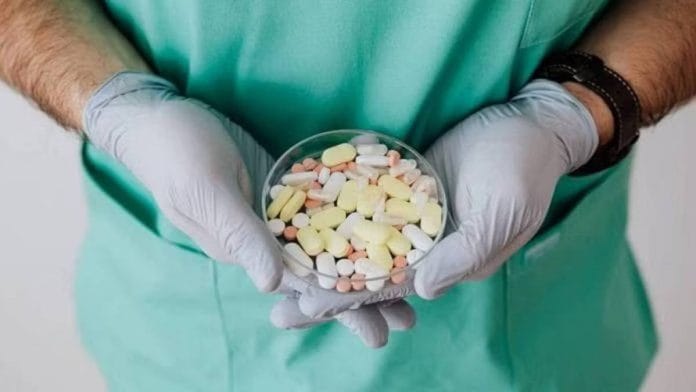New Delhi: Indian drugmakers have heaved a sigh of relief as an executive order signed Thursday by the Trump administration, imposing 25 percent trade tariffs on India, exempts pharmaceuticals, along with few other critical product categories.
The US is the biggest market for Indian pharma exporters and India exported drugs and vaccines worth $10.5 billion to the nation in 2024-25, according to government statistics.
These mainly comprised generic versions or cheaper copies of brand-name drugs created after patent expiry. India reportedly supplies nearly 47 percent of essential medicines in the US.
India’s tariffs were “among the highest in the world”, US President Donald Trump said in a post on Truth Social Wednesday, adding that it imposes “the most strenuous and obnoxious non-monetary trade barriers of any country”.
A day later, he signed an executive order introducing new tariffs on a broad range of its trading partners, including India, which will be effective from 7 August.
Pharma industry insiders believe that while the exemption has brought relief to the sector, the commentary coming from the US administration indicates that it could be temporary.
“Indian medicines remain a cornerstone of the US-India relationship, as we play a crucial role in global and US healthcare by ensuring a steady supply of affordable drugs. The latest decision (to exempt drugs from reciprocal tariffs) like the April order underscores the critical role of cost-effective, life-saving generic medicines in public health, economic stability and national security,” a senior executive with a leading drugmaker based on Mumbai told ThePrint.
However, he added, the strong language used by Trump in the past suggests that the risk is not completely over for the sector.
Speaking to ThePrint Thursday, Namit Joshi, chairman of Pharmaceuticals Export Promotion Council of India (Pharmexcil), said that any rise in import duties on Indian generics will substantially squeeze the profit margins for Indian companies but will also make them costlier for patients in the US.
“If there is a rise in import duty, the companies will eventually pass the cost on to patients as most companies dealing in simple generics anyway operate on a very thin margin,” he explained.
Industry veterans also maintained that any additional tariff imposed on medicines exported from India to the US could considerably drive up the cost of life-saving drugs there and lead to a rise in medical inflation.
Sudarshan Jain, secretary general, Indian Pharmaceutical Alliance (IPA), a network of top 23 Indian drug manufacturers, said the exemption was based on a pragmatic approach.
“As trade negotiations between India and US continue, we also hope for a fair and balanced trade deal between the two countries which prioritises both India’s national interest and patients in the US,” Jain told ThePrint.
Also Read: Indian drugmakers relieved as they dodge Trump tariffs but medical devices industry takes a hit
‘Good for Indian companies, US patients’
Many Indian companies such as Sun Pharma, Lupin, Aurobindo, Zydus and Intas, among others, earn about 30-50 percent of their sales revenues with business in the US, making the country the most important market for these firms, even ahead of India.
At the same time, in 2022, supplies by Indian drugmakers accounted for more than half of the savings to the US healthcare system brought in by generic drugs, said a 2024 report by market research firm IQVIA.
India also has the largest number of USFDA-approved drug manufacturing plants (754) outside of the US currently.
Joshi underlined that Indian drugs brought immense value in the US healthcare market as the medicines produced in India and supplied to the US were far more cost-effective than the generics manufactured there due to low cost of production.
Viranchi Shah, senior member and former president of Indian Drug Manufacturers Association (IDMA), the largest group of generic drugmakers, and director of Ahmedabad-based Saga Lifesciences, too hoped that US’ heavy dependence on generic medicines from India makes a strong case for the sector staying in the exemption list.
“We are cautiously watching the situation… but while it will be in the interest of numerous Indian companies, the generic medicines being in the exemption list is also extremely important from the perspective of a large number of patients in the US,” he said.
According to industry estimates, 70-80 percent of the total pharmaceutical supplies from India to the US are low-value high-volume generics. Only nearly 20-30 percent supplies, on the other hand, comprise complex or specialised generics—the “me-too” medicines that are comparatively more difficult to produce and cost higher.
Another senior Pharmaexcil official hoped that going ahead, the industry expected more “maturity and predictability” in trade relations between the two countries.
(Edited by Nida Fatima Siddiqui)
Also Read: Story behind India’s 1st indigenous MRI machine, that could make scans more affordable






